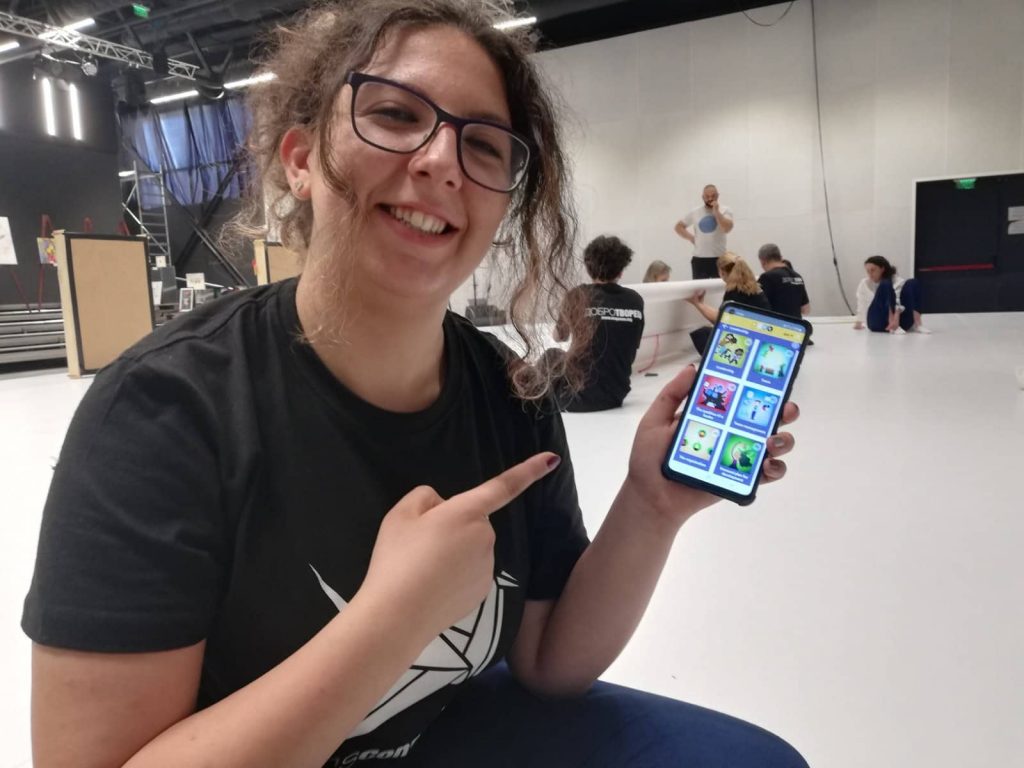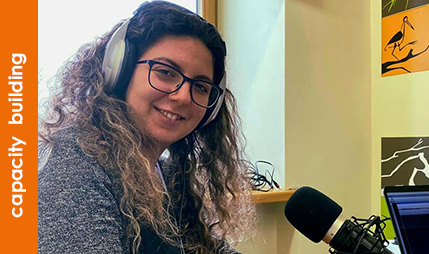Young people in ACTIon in our focus: Aylin Hadjiiska
Aylin is in 11th grade at 30th High school “Bratya Miladinovi”, Sofia. As a young person, she actively participates in different community campaigns and events. She is helping the team of Open Space Foundation, partner of the ACTIon project, in the adaptation of educational materials to make them suitable for self-education. She works actively with OSF interpreters to adapt the learning content in other languages, which will soon be available on the platform F.I.R.E.
In this interview, we are discussing with her the topic of civic education in Bulgaria. Here is what she shared with us:
Interviewer: Aylin, what is civic education according to you?
Aylin: This is the first year I am studying this subject at school. To be honest, I was looking forward to this moment. Those classes increase my motivation to be interested in the world around me and everything that is happening. I am aware that I not only live in Bulgaria, but I have an obligation toward the others in my surroundings. We are all part of society and should remind ourselves every day of this fact. We can show our awareness through many small actions, for instance, not throwing our rubbish everywhere, but rather where it should be thrown; dedicating some time to an adult regardless of how much we are in a hurry. Those small acts of goodness wake us up from the balloon in which we are closed.
If we graduate from school without knowledge on this subject, we will be lost in a desert. We will not know which authorities serve for what; we will not know what rights we have and who to approach if they are breached. We will not be able to find what we are searching for.
The most valuable skill, which we develop, in my opinion, is critical thinking. Seeing different situations, being able to define which is right and which is not, should not be taken for granted. Critical thinking is ever more needed in the 21st century, and I think that civic education classes are where we develop it. Another thing is voting. Those classes showed me that voting is important and if a person does not realize it earlier, later it can be too late. Voting is not just going and ticking a number; it is a responsibility towards our fellow citizens.
Interviewer: What should be done so that this subject becomes more useful for the students who will be in your place in the next couple of years?
Aylin: The first important step to the Civic Education of students is to prepare teachers. This is not a precise science, in which we reach the solution to the problem when we use one or two formulas. This is a subject that builds us as personalities. In those classes, we think deeply, look at causes, search for solutions, and analyze. The teachers should be ready for any type of question because we, by nature, are curious but also critical of the world and what adults tell us. They themselves should be very well-informed so that they can lead discussions or debates with the students on different topics. The good Civic Education teacher should not impose their opinion but rather guide the students to think.
Secondly, for this subject to be meaningful, I think that the number of classes should be increased because a class per week is not enough. The activities that are part of the subject require time for work, and 40 minutes are definitely not enough for that. The topic becomes very interesting, you have the energy to speak, think, and start a very deep topic…. and the class is over. There remains food for thought but after the class, you are left alone. Alone with your thoughts and doubts, with your insecurity. And sometimes, with a bit of deception in your mind.
My opinion is that Civic Education should be taught at least two or three times a week. Students should have more freedom to work on tasks and have resources. Many additional resources and discussions.


No Comments